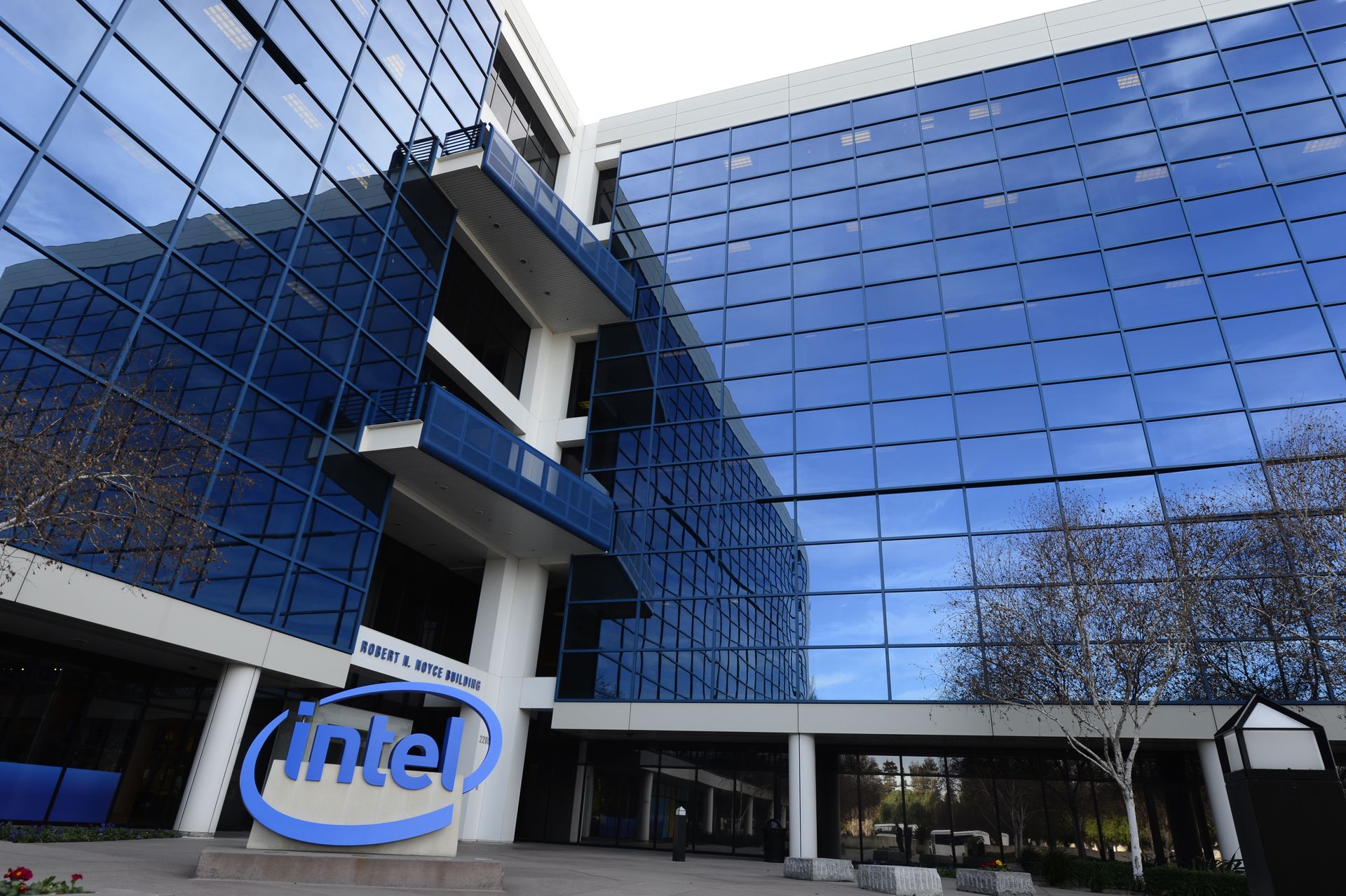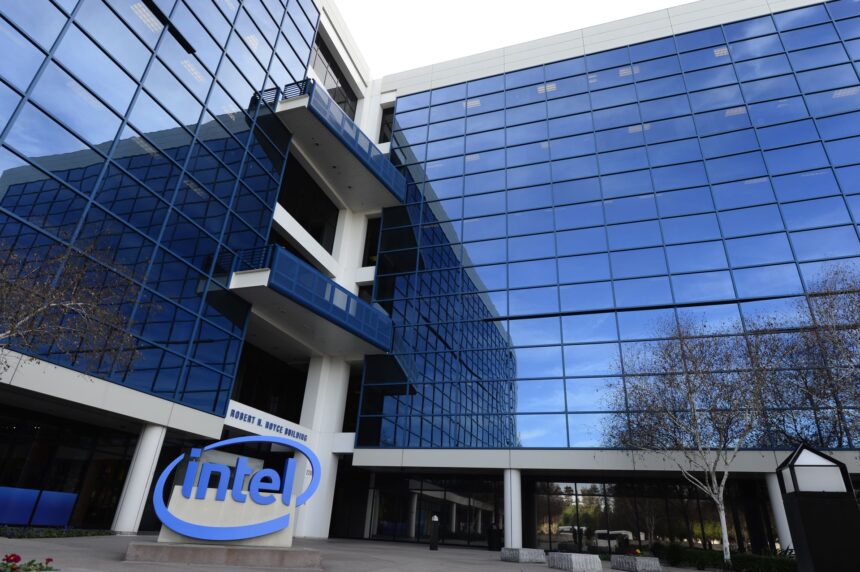
Shares of Intel Corporation (NASDAQ:INTC) surged over 10% on Tuesday following reports by the Wall Street Journal that Broadcom and Taiwan Semiconductor Manufacturing Co. (TSMC) are in preliminary talks to potentially divide Intel’s business into two segments.
Intel shares rise over 10% amid Broadcom’s and TSMC’s interest
Intel, which was once the largest semiconductor company globally, is currently struggling after its shares plummeted 59.60% last year, largely because it missed out on the generative artificial intelligence boom. Broadcom is reportedly interested in acquiring Intel’s chip-design and marketing business, contingent on securing a partner for Intel’s manufacturing side. In contrast, TSMC has expressed interest in investing in and possibly controlling some or all of Intel’s chip manufacturing facilities.
As of the report, shares of TSMC (NYSE:TSM) were down more than 1%, and Broadcom stock (NASDAQ:AVGO) fell approximately 3%. The notion of splitting Intel, once considered unthinkable during its dominance in the processing sector, aligns with current industry trends where companies increasingly prefer to focus on either manufacturing or designing chips. Intel experienced a significant setback in November 2023, losing its position in the Dow Jones Industrial Average to Nvidia after holding that spot for 25 years.
Broadcom and TSMC explore Intel acquisition options
Analysts, including Evercore’s Mark Lipacis, have suggested that breaking up Intel could unlock considerable value for its shareholders. Lipacis estimated that Intel could be conservatively worth $167 billion, equating to $38.24 per share, while more optimistic projections suggest a valuation of $237 billion or $54.18 per share.
However, analysts caution that structuring a deal could pose challenges, including the need for regulatory approval from various countries, such as China. Intel’s factories historically focused on producing x86 CPUs, raising concerns about their efficiency in manufacturing external chips. Furthermore, Intel’s foundry business reported a 76% operating loss in 2024, in contrast to TSMC’s 45% operating margin. Bank of America’s Vivek Arya pointed out that any potential split would likely be complex and time-consuming, matched with regulatory hurdles and antitrust issues.
Additionally, any involvement from TSMC regarding Intel’s manufacturing business may face restrictions due to the CHIPS Act funding regulations, which require Intel to maintain ownership of over 50% of its foundry. The Trump administration has also expressed caution regarding a foreign entity fully acquiring a significant U.S.-owned company involved with the Department of Defense.
Broadcom’s CEO Hock Tan’s strategic ability to manage costs while fostering innovation has led some analysts to identify Broadcom as a potentially suitable candidate to take over Intel’s product business. Intel has faced a tumultuous period, culminating in the exit of CEO Pat Gelsinger on December 1. Gelsinger had spearheaded a turnaround strategy for over three years, which included cost-cutting, job reductions, and securing CHIPS Act funding.
Following Gelsinger’s departure, CFO David Zinsner and former head of client computing Michelle Johnston Holthaus were named interim co-CEOs. Intel aims to appoint a new permanent CEO, likely from outside the company, focusing on restoring investor trust and stabilizing the company’s financial situation.
Intel reported a 7% decrease in fourth-quarter sales year-over-year, totalling $14.3 billion, with net earnings plummeting 76%. The company anticipates only breaking even on profit for the current year. The interest from Broadcom and TSMC follows speculation around potential bids from other companies, including Qualcomm, Arm, and Apollo.
The possibility of a breakup has been a topic of discussion among Wall Street analysts, with suggestions that separating Intel’s product and foundry divisions could unlock value. However, such plans face scrutiny considering the constraints of the CHIPS Act funding and potential regulatory issues. Investors continue to monitor the situation closely as Intel shares exhibit significant volatility.
Intel’s stock has experienced a notable rally, with a 16% gain on Tuesday marking its largest single-day increase since March 2020. The stock is up 38.5% over the past five days, following signals of U.S. support for domestic chip manufacturing and suggestions that the government may engage with TSMC to assist Intel’s efforts. Investors are advised to watch key price levels, including $26, $32, $37, and $45, as well as a major support level near $19.
Another major development is unfolding at the same time. Private equity firm Silver Lake Partners is in advanced negotiations to acquire a majority stake in Intel’s programmable chip business, Altera, according to sources familiar with the matter.
Silver Lake has reportedly outbid other potential buyers, including Bain Capital and Francisco Partners, in securing a deal for Altera. While the final terms of the transaction remain undisclosed, the acquisition would mark a significant shift for Intel, which bought Altera for $17 billion in 2015 as part of its efforts to expand into the FPGA market. These chips are used in AI processing, networking, and industrial automation, making Altera a valuable asset in today’s rapidly evolving semiconductor landscape.
Intel had previously explored spinning off Altera as a standalone entity, with an IPO on the horizon. It remains unclear whether Silver Lake’s involvement will replace that strategy or if Intel will retain a minority stake in the business. Given the heightened demand for FPGAs—especially after AMD’s $49 billion acquisition of Xilinx in 2022—Altera has attracted significant interest from investors looking to capitalize on the growing AI-driven semiconductor market.
Disclaimer: The content of this article is for informational purposes only and should not be construed as investment advice. We do not endorse any specific investment strategies or make recommendations regarding the purchase or sale of any securities.
Featured image credit: Intel






